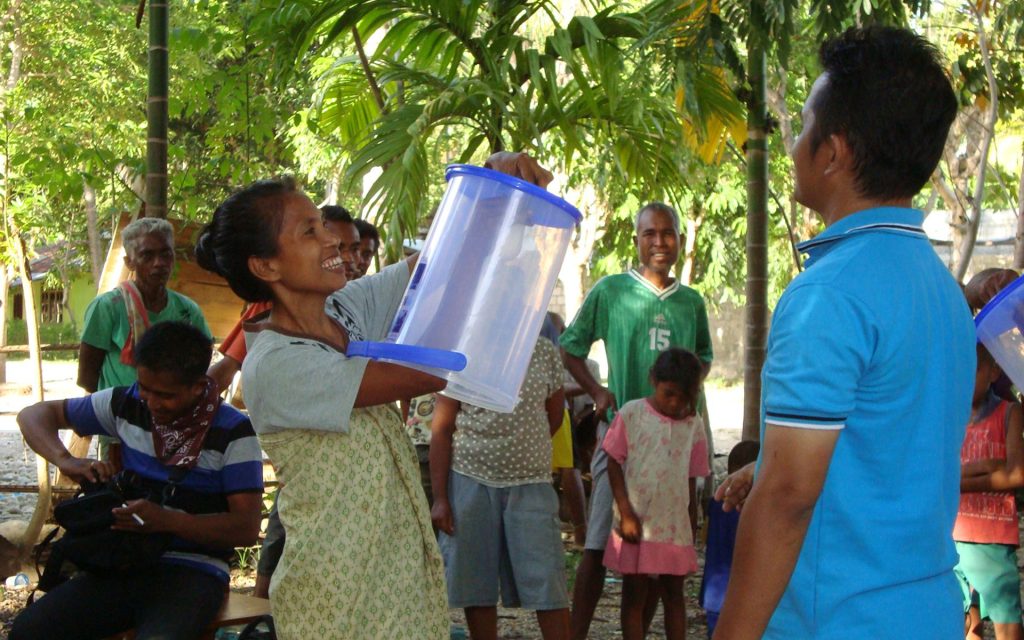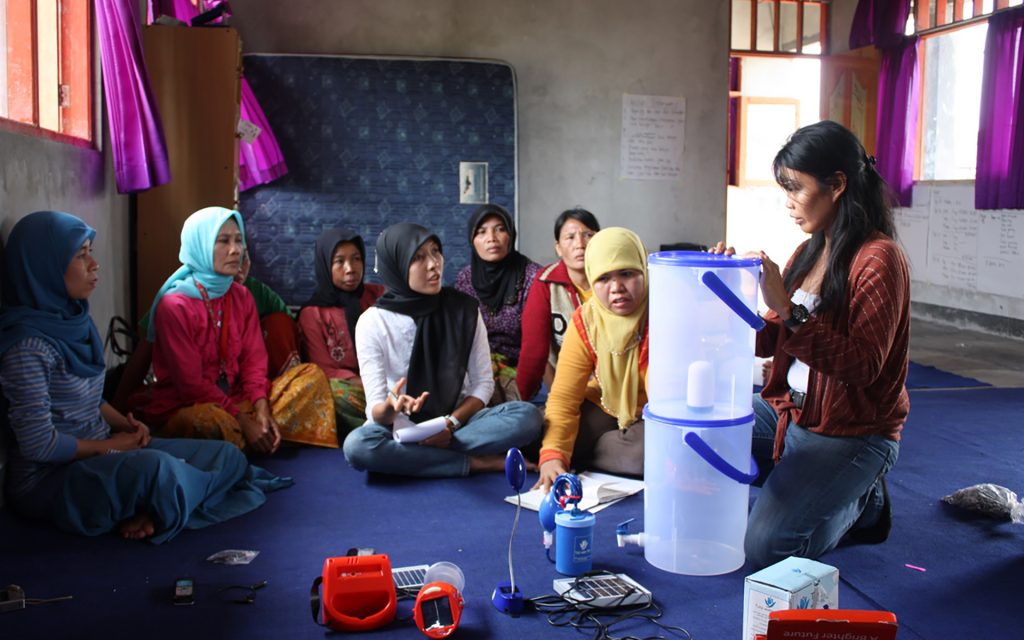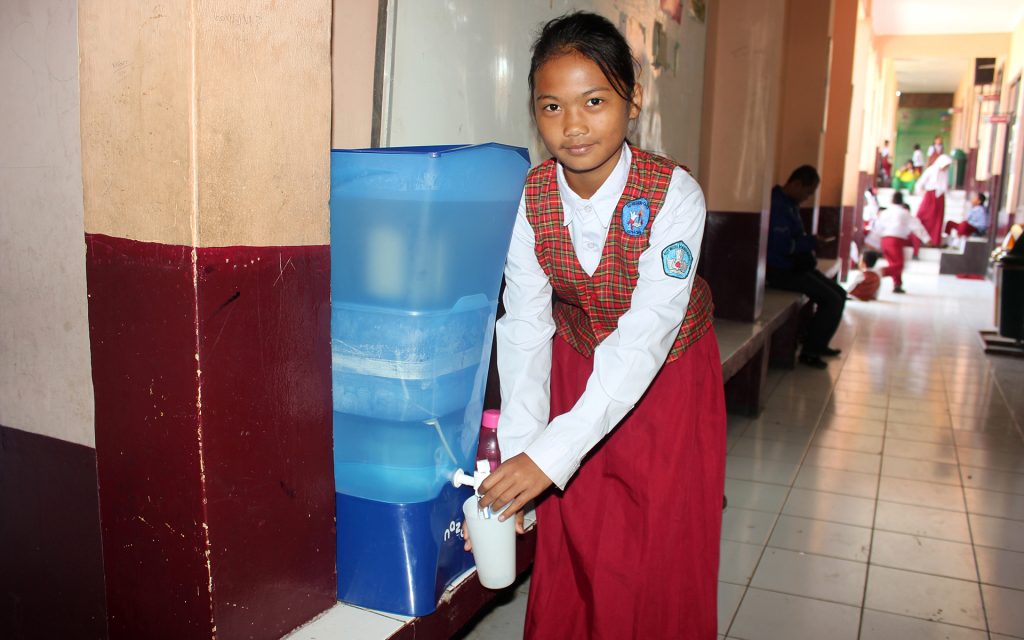
Together with our amazing members, GoClimate have now offset another 9087 ton CO2eq in the Gold Standard certified project Nazava Water Filters.
According to the World Economic Forum, lack of access to safe drinking water is one of the biggest threats to humanity today. The Nazava project is a social enterprise that sells affordable ceramic water filters to low-income households in Indonesia (where the lack of clean water is a wide-spread problem) enabling access to safe drinking water. The project also leads to reduced CO2 emissions as well as a number of other benefits, both on a global and a local level.
Thank you to everyone who has contributed to this!

Difficulties for low-income households to get water
The positive impact safe drinking water has on public health is pretty obvious. It prevents disease and even death. The conventional methods for obtaining drinking water involve fetching, transporting and storing water and then boiling it to make it safe enough to drink. The fact that the water often needs to be transported a long way and to then be stored for a long period of time, means that the risk of it being contaminated is large, even if the water was clean at the point of fetching. Boiling is an energy intensive and time-consuming purification method, often involving burning wood or charcoal. In cases where fetching drinking water is not an option, low-income households are left to spend money on buying water, leading to an unsustainable financial situation.

The Nazava Water Filter project saves CO2
The Nazava Water Filter project leads to a reduction in GHG emissions, as burning wood or fossil fuel for cleaning water is omitted. The project activity has the potential to give an annual average CO2 emission reduction of up to 372,774 t CO2e over a 10 year period. This yearly reduction in energy is comparable to one year’s CO2 emissions from 5 000 Swedish households.
The Filter
The technology used for this specific filter is a ceramic type that produces water of safe drinking water quality. The Nazava Water Filters remove 99.9% of bacteria as tested by WHO – a result honoring the name Nazava, which is arabic for “cleanliness”. The filters are easy to use and sold at an affordable price, making them accessible for the low-income households affected. The filters can be used thousands of times before they need to be replaced, making this technique a highly sustainable one.

Other important benefits
The positive impact of access to safe drinking water and the great climate impact is probably pretty clear by now, but the Nazava project keeps on giving with it’s many other social and economic benefits!
Not having to carry water a long way reduces the risk of wear and tear. Not having to boil water reduces the indoor air pollution from burning wood, which is a health risk important to avoid.
The project also creates value for the local community in important ways. Buying and using the filters, low-income households saves the cost for buying wood or water, and as well as saves the labour spent on fetching and preparing the water. User surveys show that this is welcomed as a considerable advantage and the project has been well received.
The selling and distribution is carried out by a network of informal resellers or micro-entrepreneurs, many of which are women, working under the brand name Nazava Water Filters.
The Nazava project has a positive impact on many of the UN Sustainability Goals – numbers 1, 3, 5, 6, 8, 13, and 15 (No poverty, Good Health and Wellbeing, Gender equality, Good Health and sanitation, Decent work and economic growth, Climate action and Life on land).